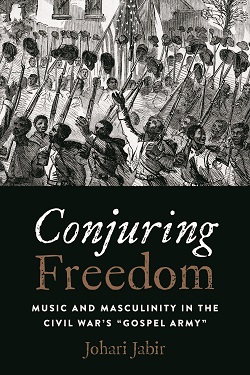Hear Johari Jabir discuss his book on the New Books Network podcast.
“The argument of Conjuring Freedom is engaging and valuable as critical cultural theorizing. The audience for such a book will undoubtedly be diverse, ranging from fields such as African American history, military history, and civil rights to critical race theory, gender and sexuality studies, and cultural studies.” —John Roberts, author of From Trickster to Badman: The Black Folk Hero in Slavery and Freedom
"Examining the complex interplay of sacred and secular elements brought together through the aspirations and agency of African American soldiers, Conjuring Freedom vividly illustrates how the fight for Black emancipation during the U.S. Civil War served as a catalyst for American civil religion’s emergence and evolution.” —Juan Floyd-Thomas, author of Liberating Black Church History: Making It Plain
Conjuring Freedom: Music and Masculinity in the Civil War’s “Gospel Army” analyzes the songs of the 1st South Carolina Volunteers, a regiment of Black soldiers who met nightly in the performance of the ring shout. In this study, acknowledging the importance of conjure as a religious, political, and epistemological practice, Johari Jabir demonstrates how the musical performance allowed troop members to embody new identities in relation to national citizenship, militarism, and masculinity in more inclusive ways. Jabir also establishes how these musical practices of the regiment persisted long after the Civil War in Black culture, resisting, for instance, the paternalism and co-optive state antiracism of the film Glory, and the assumption that Blacks need to be deracinated to be full citizens.
Reflecting the structure of the ring shout—the counterclockwise song, dance, drum, and story in African American history and culture—Conjuring Freedom offers three new concepts to cultural studies in order to describe the practices, techniques, and implications of the troop’s performance: (1) Black Communal Conservatories, borrowing from Robert Farris Thompson’s “invisible academies” to describe the structural but spontaneous quality of black music-making, (2) Listening Hermeneutics, which accounts for the generative and material affects of sound on meaning-making, and (3) Sonic Politics, which points to the political implications of music’s use in contemporary representations of race and history.
Johari Jabir is Assistant Professor at the University of Illinois at Chicago.
Contents
Prelude
Introduction
Chapter 1 A Strange Fulfillment of Dreams: Racial Fetish and Fantasy in Thomas Wentworth Higginson’s Army Life in a Black Regiment
Chapter 2 The Collective Will to Conjure: Religion, Ring Shout, and Spiritual Militancy in a Black Regiment
Chapter 3 One More Valiant Soldier: Music and Masculinity in a Black Regiment
Chapter 4 Moon Rise: Songs of Loss, Lament, and Liberation in a Black Regiment
Chapter 5 Military “Glory” or Racial Horror
Postlude My Army Cross Over
Bibliography
Index of Songs
General Index
Related Titles:
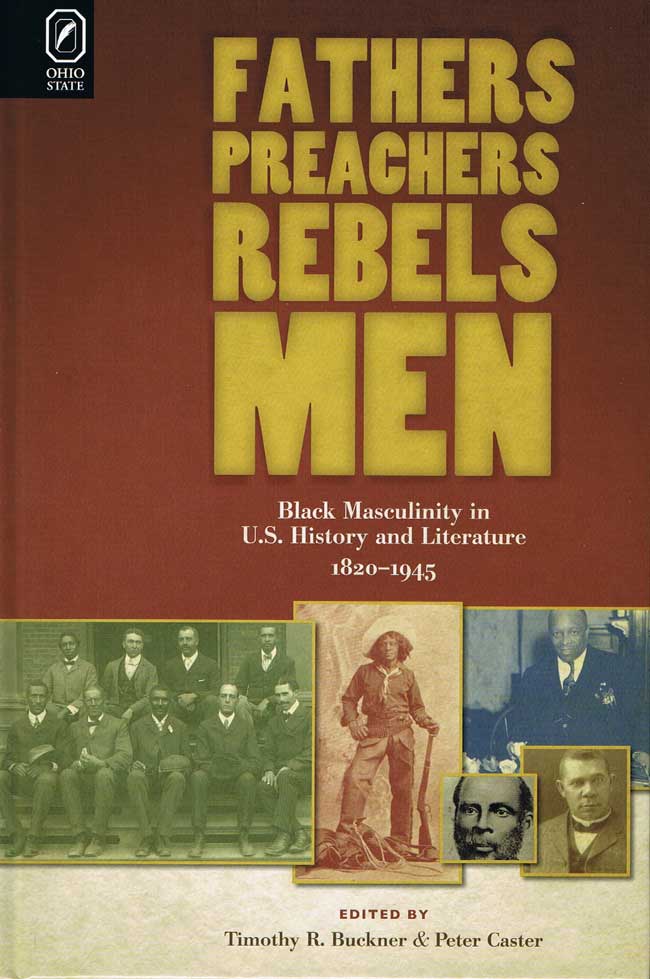
Fathers, Preachers, Rebels, Men
Black Masculinity in U.S. History and Literature, 1820-1945
Edited by Timothy R. Buckner and Peter Caster
HARDCOVER, PAPER
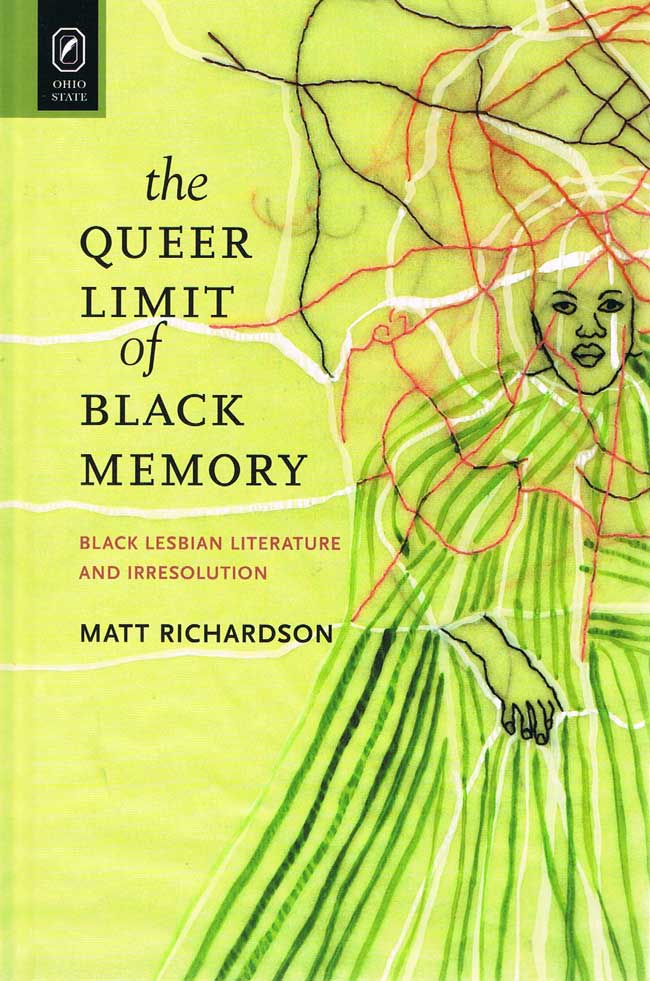
The Queer Limit of Memory
Black Lesbian Literature and Irresolution
Matt Richardson
HARDCOVER, PAPER
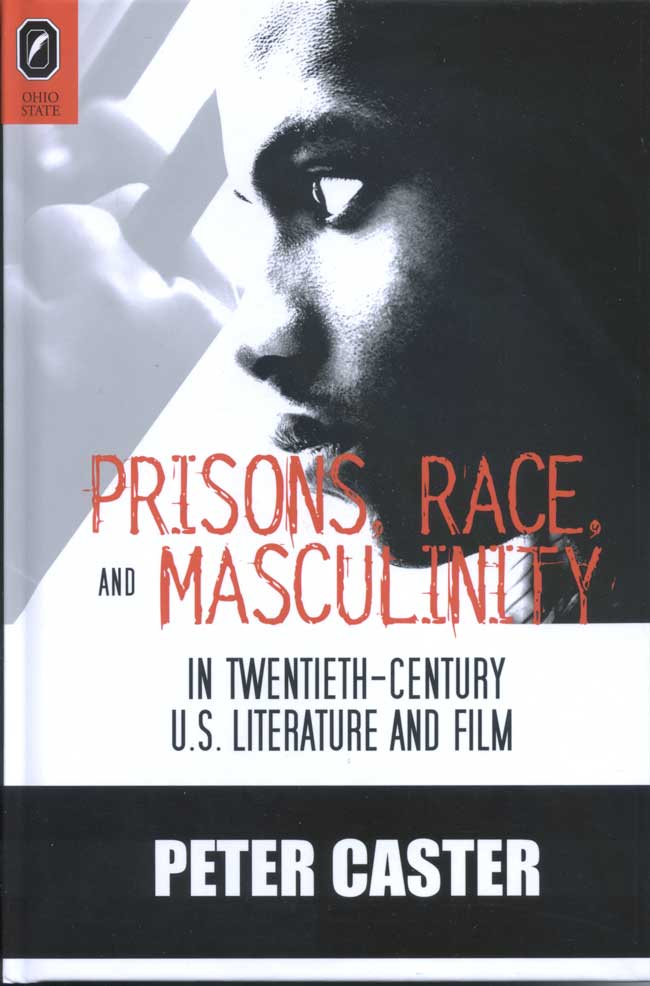
Prisons, Race, and Masculinity in Twentieth-Century U.S. Literature and Film
Peter Caster
HARDCOVER, PAPER
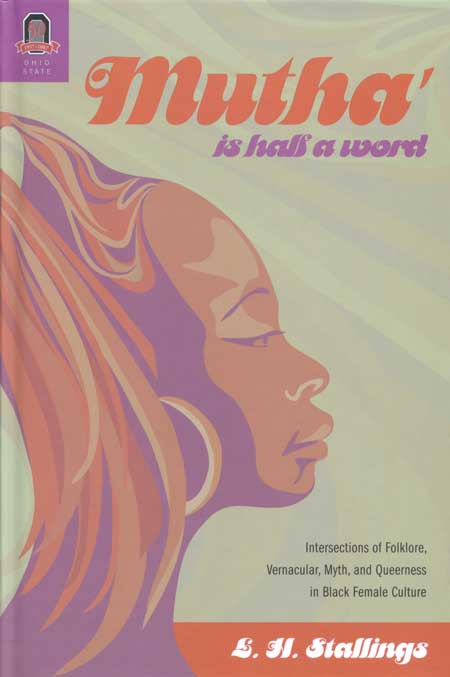
Mutha’ Is Half a Word
Intersections of Folklore, Vernacular, Myth, and Queerness in Black Female Culture
L.H. Stallings
HARDCOVER, PAPER

The Ethics of Swagger
Prizewinning African American Novels, 1977-1993
Michael Derell Hill
HARDCOVER, PAPER
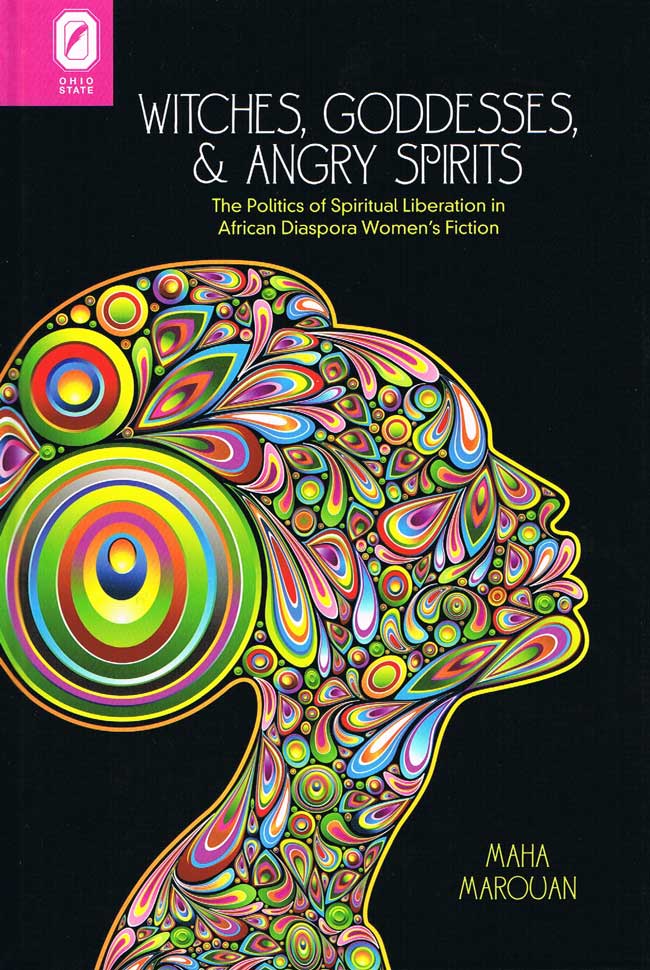
Witches, Goddesses, Angry Spirits
The Politics of Spiritual Liberation in African Diaspora Women’s Fiction
Maha Marouan
HARDCOVER
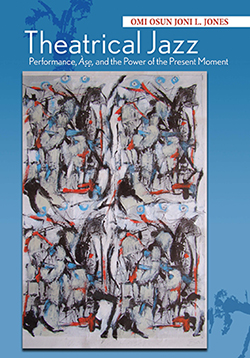
Theatrical Jazz
Performance, Àṣẹ, and the Power of the Present Moment
Omi Osun Joni L. Jones
HARDCOVER


